 International Pulp Week kicked off today at the Pan Pacific Hotel in Vancouver, BC. This annual three-day conference organized by the Pulp and Paper Products Council brings together the world’s leading producers of market pulp, suppliers, financial analysts, logistic companies, and their customers for a first-class informational and networking opportunity. The goal of the event is to provide knowledge, data, and in-depth analysis on the latest market developments and trends in the market pulp industry worldwide as well as to serve the market pulp industry by allowing for a multitude of business meetings and networking opportunities that would otherwise require travel to several continents. Stay tuned all week for Tree Frog News coverage of the event. Here are a few of the attendees gathered at the opening reception.
International Pulp Week kicked off today at the Pan Pacific Hotel in Vancouver, BC. This annual three-day conference organized by the Pulp and Paper Products Council brings together the world’s leading producers of market pulp, suppliers, financial analysts, logistic companies, and their customers for a first-class informational and networking opportunity. The goal of the event is to provide knowledge, data, and in-depth analysis on the latest market developments and trends in the market pulp industry worldwide as well as to serve the market pulp industry by allowing for a multitude of business meetings and networking opportunities that would otherwise require travel to several continents. Stay tuned all week for Tree Frog News coverage of the event. Here are a few of the attendees gathered at the opening reception.
 British Columbia is world renowned for its incredible wilderness landscape, mountains, rivers, lakes and forests. It’s a great place to live, work and play. Our forests are regionally diverse – from coastal and interior rainforests, dry belt pine and fir forest and higher elevation spruce and balsam, old growth and new growth – they all have one thing in common … trees!
British Columbia is world renowned for its incredible wilderness landscape, mountains, rivers, lakes and forests. It’s a great place to live, work and play. Our forests are regionally diverse – from coastal and interior rainforests, dry belt pine and fir forest and higher elevation spruce and balsam, old growth and new growth – they all have one thing in common … trees! 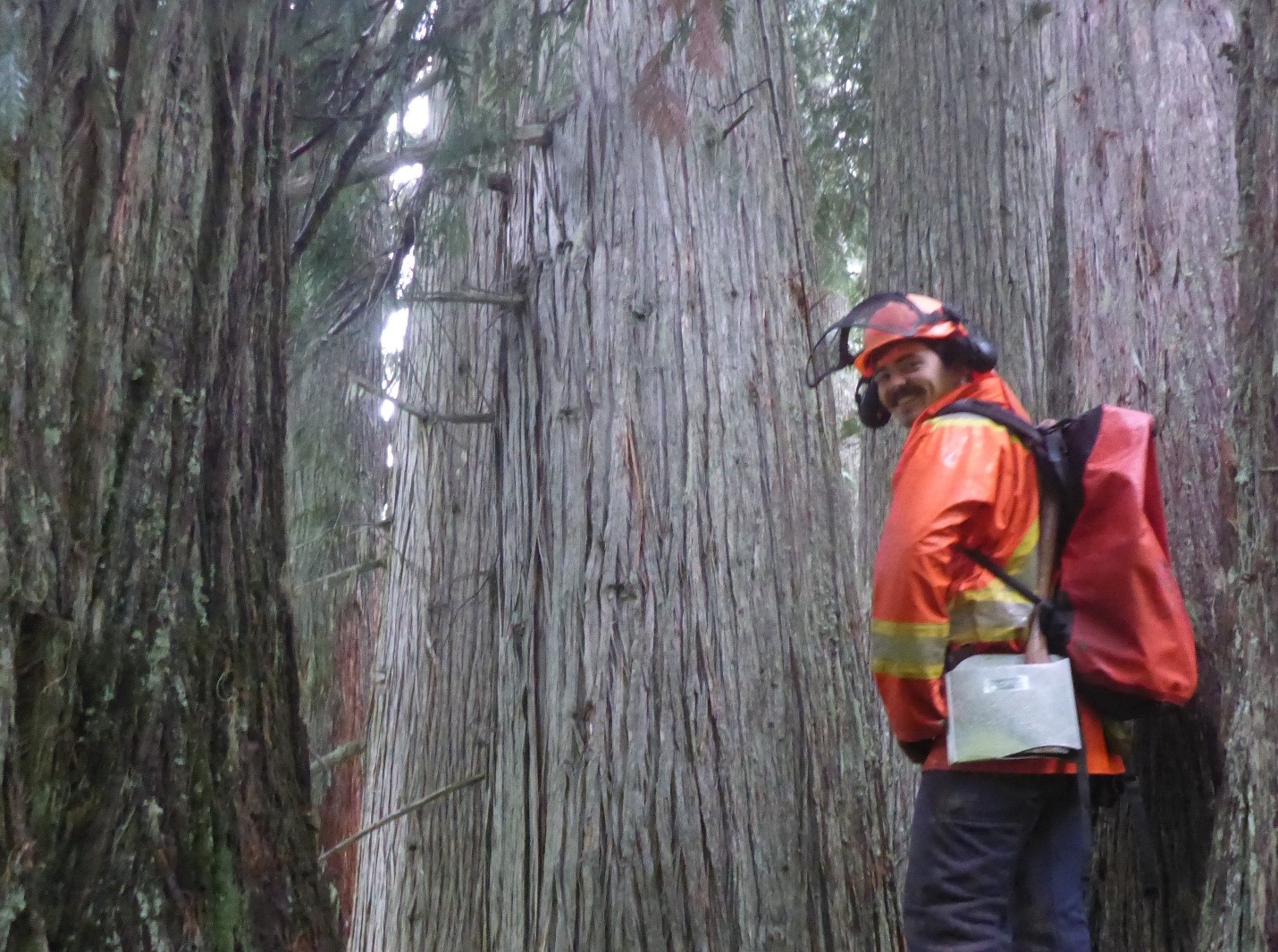 Whether working or playing, it is essential to be aware of a forest’s potential hazards and what can put you at risk, specifically as it relates to the trees. …“If a tree falls in the forest, does anyone hear?” … only if someone is near enough to hear. The same applies to the danger it may pose. If no one is near it, then even if it falls, it isn’t a danger to anyone. Spend enough time in a forest and you will witness a tree fall over on its own.
Whether working or playing, it is essential to be aware of a forest’s potential hazards and what can put you at risk, specifically as it relates to the trees. …“If a tree falls in the forest, does anyone hear?” … only if someone is near enough to hear. The same applies to the danger it may pose. If no one is near it, then even if it falls, it isn’t a danger to anyone. Spend enough time in a forest and you will witness a tree fall over on its own.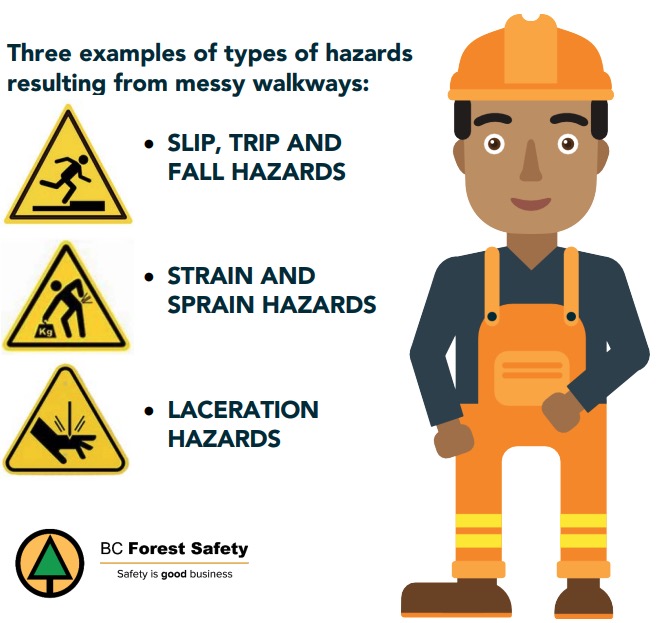 These weekly resources are simple yet powerful tools to help keep safety conversations alive and evolving in your workplace. BCFSC offers a library of hundreds of Crew Talks each designed to support short, focused safety discussions in five minutes or less. They support effective supervisor-worker engagement, helping spark meaningful conversations about current safety procedures and concerns.
These weekly resources are simple yet powerful tools to help keep safety conversations alive and evolving in your workplace. BCFSC offers a library of hundreds of Crew Talks each designed to support short, focused safety discussions in five minutes or less. They support effective supervisor-worker engagement, helping spark meaningful conversations about current safety procedures and concerns. People who work outdoors can often be at the highest risk for heat-related illnesses and injuries during hot summer conditions. High temperatures and sunshine can be a wonderful thing when enjoying time at the lake or on the beach but can cause serious health issues. The wide variety of job roles and often rigorous physical activity in forestry can put workers at risk for heat-related illness if not managed properly.
People who work outdoors can often be at the highest risk for heat-related illnesses and injuries during hot summer conditions. High temperatures and sunshine can be a wonderful thing when enjoying time at the lake or on the beach but can cause serious health issues. The wide variety of job roles and often rigorous physical activity in forestry can put workers at risk for heat-related illness if not managed properly.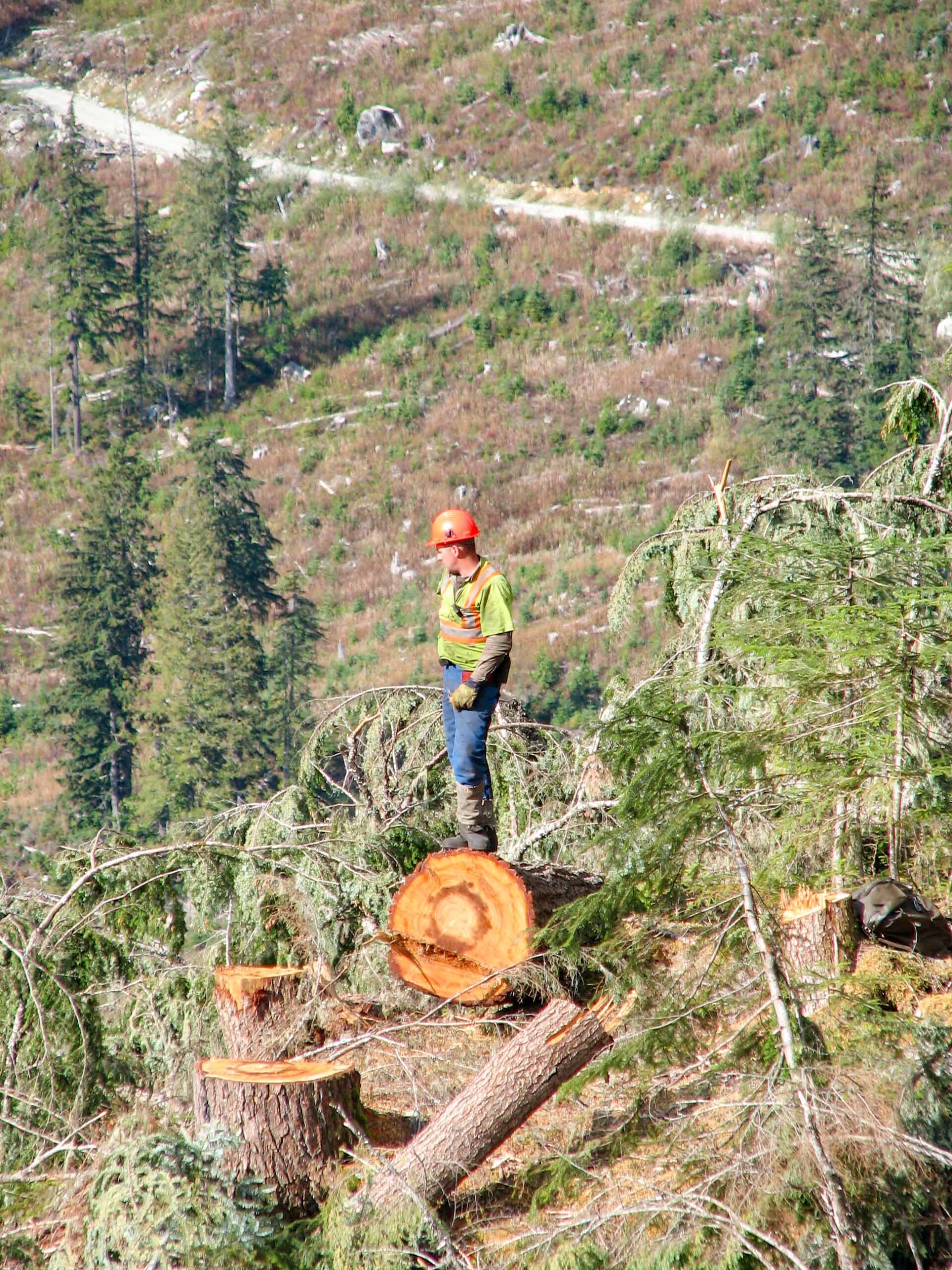 Managing psychological health and safety in the workplace is as important as managing physical health and safety. A psychologically healthy and safe workplace prevents harm to workers’ mental health and promotes mental well-being. While many factors outside the workplace can affect mental health, it is an employer’s responsibility to address the factors that are within the control, responsibility, or influence of the workplace. Psychological health and safety involves how people interact with each other daily, how working conditions and management practices are structured, and how decisions are made and communicated. In the forestry sector, workers face unique psychological challenges, including financial stress from an unstable market, job instability, social isolation, and the impact of climate change and severe weather conditions.
Managing psychological health and safety in the workplace is as important as managing physical health and safety. A psychologically healthy and safe workplace prevents harm to workers’ mental health and promotes mental well-being. While many factors outside the workplace can affect mental health, it is an employer’s responsibility to address the factors that are within the control, responsibility, or influence of the workplace. Psychological health and safety involves how people interact with each other daily, how working conditions and management practices are structured, and how decisions are made and communicated. In the forestry sector, workers face unique psychological challenges, including financial stress from an unstable market, job instability, social isolation, and the impact of climate change and severe weather conditions. They are also required to conduct regular emergency and first aid drills as part of their annual drill requirements to ensure workers understand their roles and responsibilities. As forestry operations in BC move into more remote and rugged areas, getting help to an injured worker quickly can be a serious challenge. …To help companies build stronger ERPs—especially when it comes to worker extraction—the BC Forest Safety Council and the Trucking and Harvesting Advisory Group created a video series.
They are also required to conduct regular emergency and first aid drills as part of their annual drill requirements to ensure workers understand their roles and responsibilities. As forestry operations in BC move into more remote and rugged areas, getting help to an injured worker quickly can be a serious challenge. …To help companies build stronger ERPs—especially when it comes to worker extraction—the BC Forest Safety Council and the Trucking and Harvesting Advisory Group created a video series.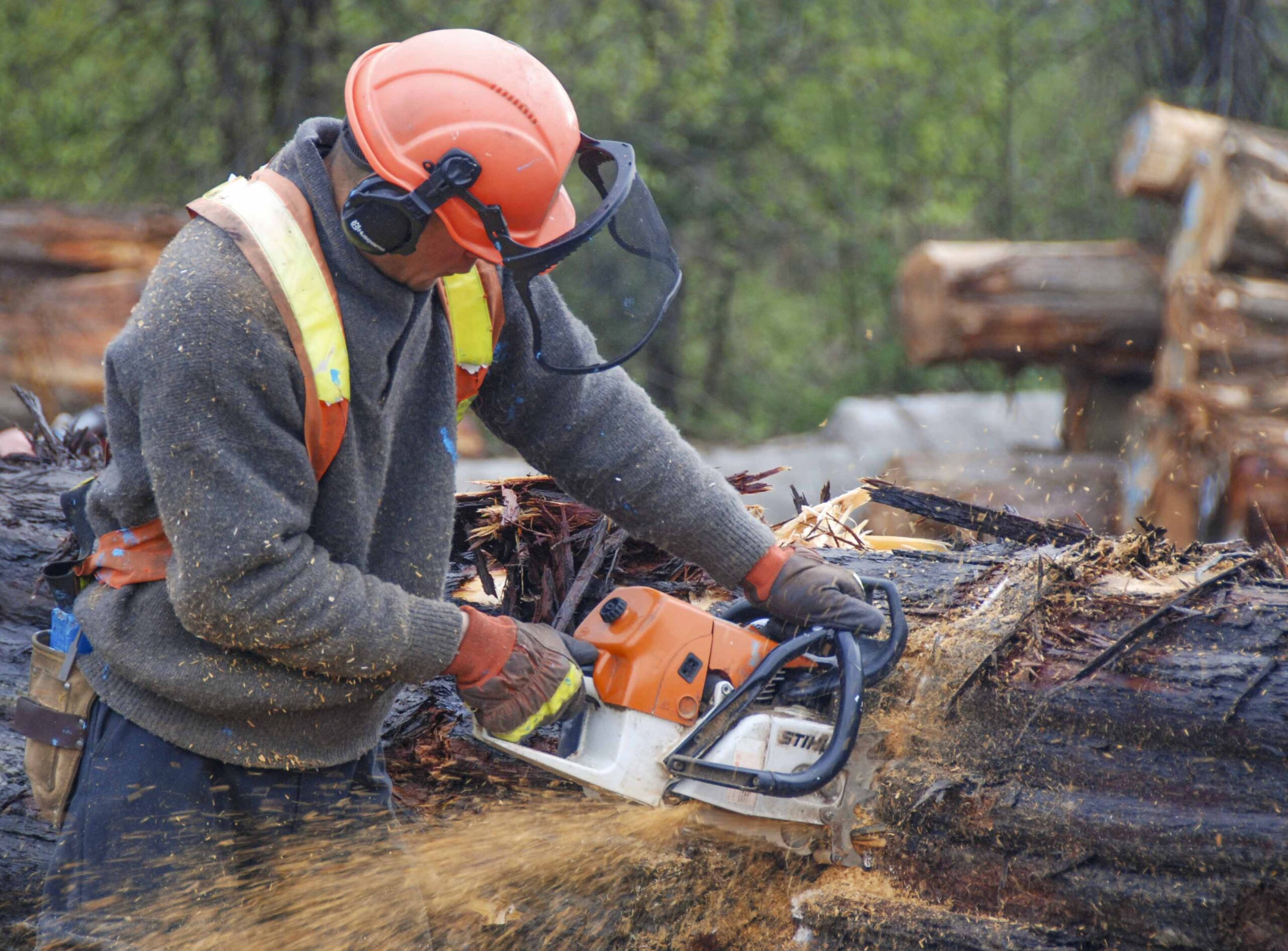 Noise-induced hearing loss (NIHL) is not just a long-term risk, it’s a fast-growing occupational disease that affects workers across the province. Over the past decade, WorkSafeBC has accepted almost 2,000 claims for hearing loss in the forestry sector. To prevent hearing loss, employers in the forestry sector must proactively recognize risks and understand the specific tasks workers will undertake, making pre-work planning a key step in injury prevention. The impact of noise on hearing “The risk of hearing loss depends on both noise level and exposure time,” says Sasha Brown, an occupational audiologist with WorkSafeBC. “For example, brief exposure to extremely loud noise or sustained exposure to moderate levels can be equally damaging to hearing.”
Noise-induced hearing loss (NIHL) is not just a long-term risk, it’s a fast-growing occupational disease that affects workers across the province. Over the past decade, WorkSafeBC has accepted almost 2,000 claims for hearing loss in the forestry sector. To prevent hearing loss, employers in the forestry sector must proactively recognize risks and understand the specific tasks workers will undertake, making pre-work planning a key step in injury prevention. The impact of noise on hearing “The risk of hearing loss depends on both noise level and exposure time,” says Sasha Brown, an occupational audiologist with WorkSafeBC. “For example, brief exposure to extremely loud noise or sustained exposure to moderate levels can be equally damaging to hearing.”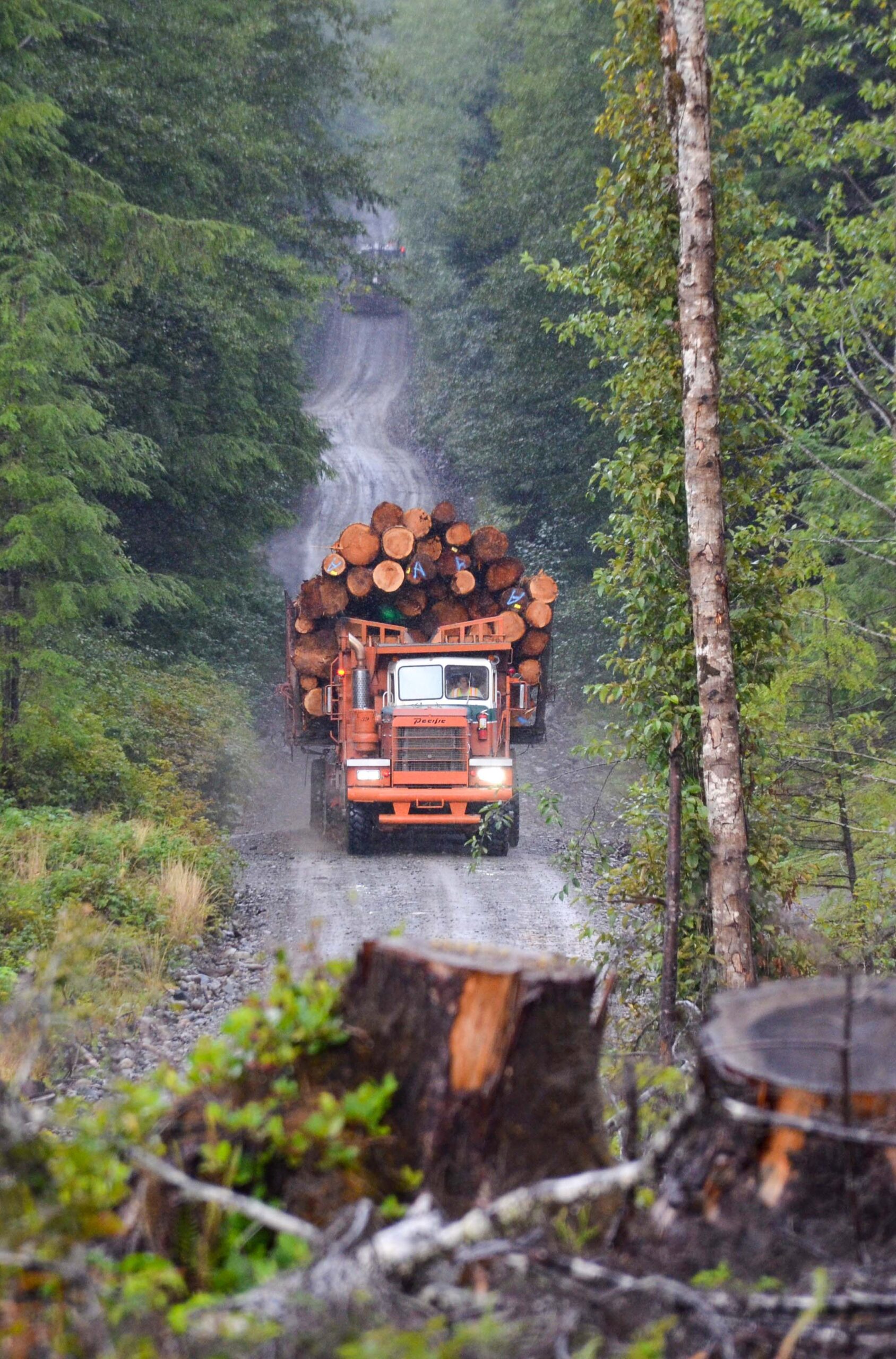 All resource road users play a key role in ensuring safe passage on these roads. Always exercise caution and have an understanding of the risks. Most resource roads have gravel surfaces and are often single lanes with limited visibility due to roadside brush and sharp, winding turns and curves. They often have soft shoulders, minimal ditches, steeper grades, changing road surfaces with loose or rough gravel and potholes. Drivers should always read and understand the signs at the start of the road and along the way as they provide important information about the road, radio channel, restrictions, expected traffic and other hazards and obstacles you may encounter while driving.
All resource road users play a key role in ensuring safe passage on these roads. Always exercise caution and have an understanding of the risks. Most resource roads have gravel surfaces and are often single lanes with limited visibility due to roadside brush and sharp, winding turns and curves. They often have soft shoulders, minimal ditches, steeper grades, changing road surfaces with loose or rough gravel and potholes. Drivers should always read and understand the signs at the start of the road and along the way as they provide important information about the road, radio channel, restrictions, expected traffic and other hazards and obstacles you may encounter while driving.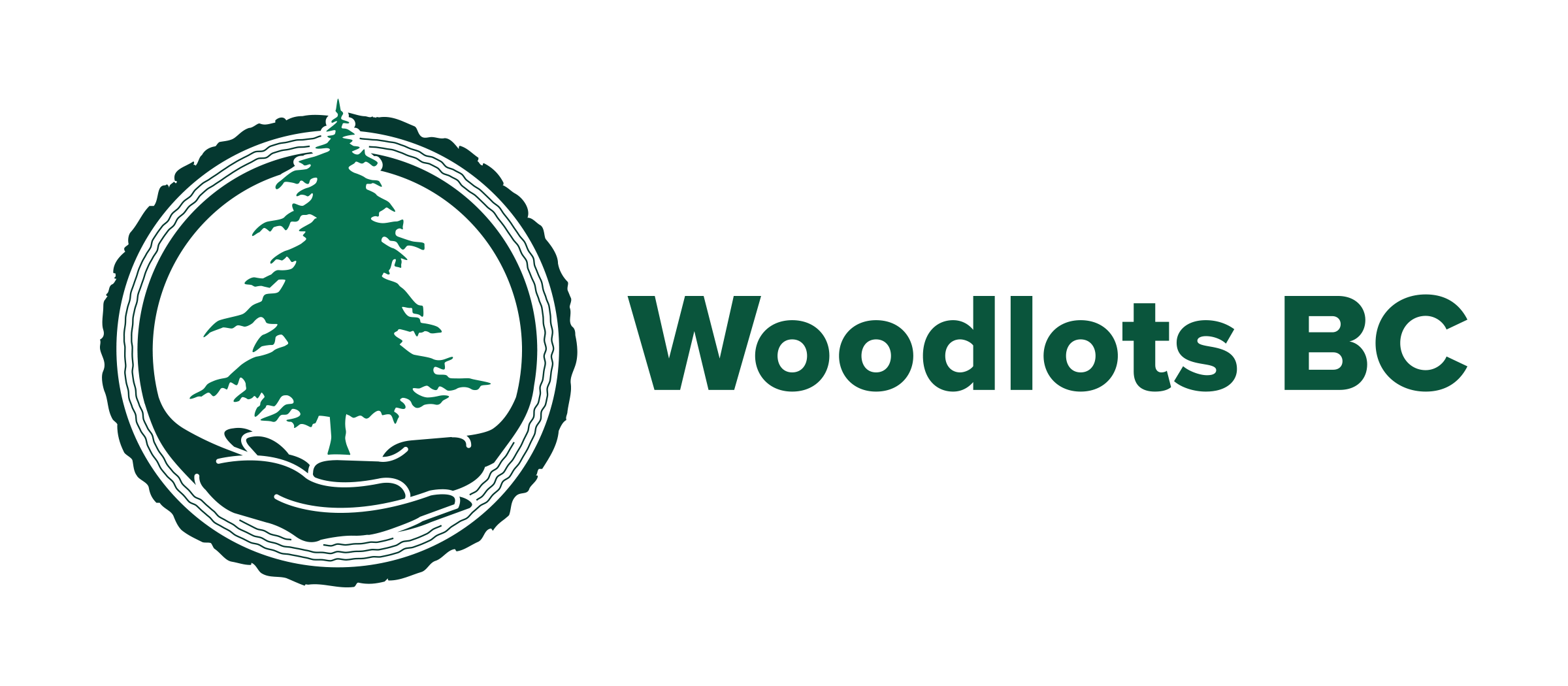 BC Hydro data shows that severe weather events in the last 3 to 5 years have led to some of the most damaging storms in BC Hydro’s history. BC’s forest health aerial surveys show that the area of windthrown timber in 2021 (12,600+ ha) was 3 times the average over the last decade. Wind events pose significant risks to people working on and traveling to and from woodlots and community forests. This bulletin provides licensees, managers and workers with guidance and resources they can use to plan and conduct operations that minimize risk of injury to workers during those events.
BC Hydro data shows that severe weather events in the last 3 to 5 years have led to some of the most damaging storms in BC Hydro’s history. BC’s forest health aerial surveys show that the area of windthrown timber in 2021 (12,600+ ha) was 3 times the average over the last decade. Wind events pose significant risks to people working on and traveling to and from woodlots and community forests. This bulletin provides licensees, managers and workers with guidance and resources they can use to plan and conduct operations that minimize risk of injury to workers during those events.
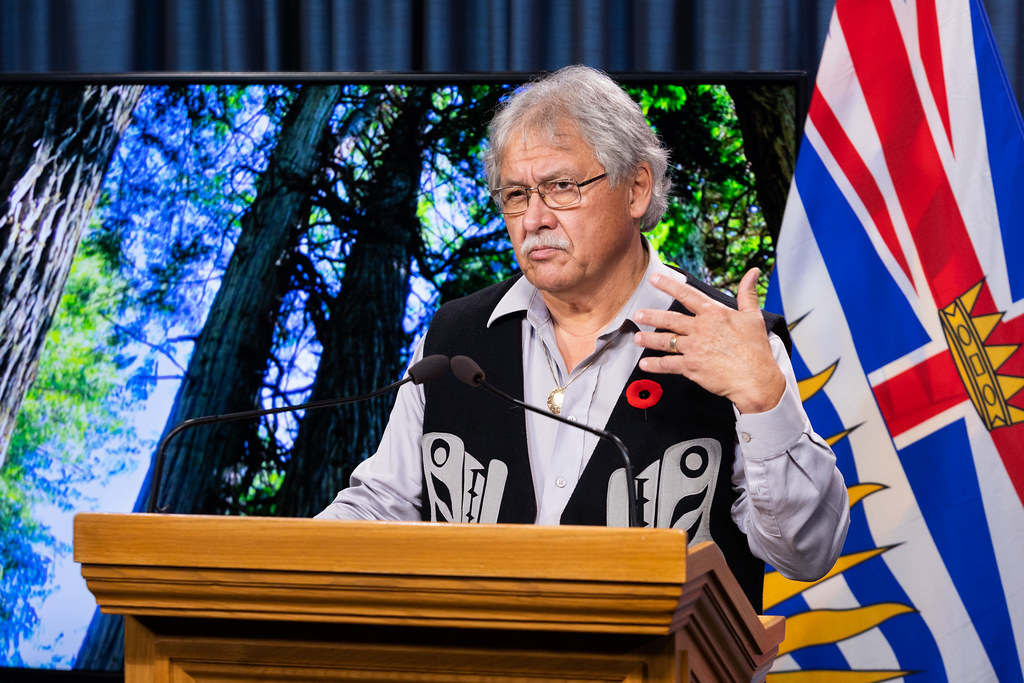

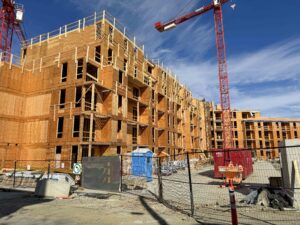 New homes development got a shot in the arm this spring with April starts rising in Canada and the United States. Recent reports from TD Economics examined new home data in both markets, finding month-over-month rises in starts for April. In Canada, starts jumped 30 per cent month over month, marking the largest rise since June 2023. Driving growth was the multi-family family segment that saw starts rise 34 per cent, whereas single-family detached home starts gained six per cent from March. …TD noted the “bounce-back” in activity was not unsurprising given levels were so low to start the year. What’s more, housing starts could “be softening,” amid higher construction costs and lower immigration, it cautioned. In the U.S., activity was less robust by percentage growth. Starts there increased less than two per cent month over month.
New homes development got a shot in the arm this spring with April starts rising in Canada and the United States. Recent reports from TD Economics examined new home data in both markets, finding month-over-month rises in starts for April. In Canada, starts jumped 30 per cent month over month, marking the largest rise since June 2023. Driving growth was the multi-family family segment that saw starts rise 34 per cent, whereas single-family detached home starts gained six per cent from March. …TD noted the “bounce-back” in activity was not unsurprising given levels were so low to start the year. What’s more, housing starts could “be softening,” amid higher construction costs and lower immigration, it cautioned. In the U.S., activity was less robust by percentage growth. Starts there increased less than two per cent month over month.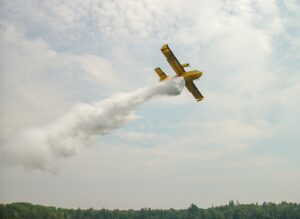 Weyerhaeuser Company and Firefighter Behavioral Health Alliance (FBHA) today announced an extension of their Fighting Fires Together campaign, a partnership that provides specialized mental health support for wildland firefighters and their families across the Pacific Northwest. Fighting Fires Together, now in its fourth year, addresses the often-overlooked mental health impacts of wildland firefighting in isolated, hazardous and highly stressful conditions. Through a free online resource hub, first responders can find specially designed content, including videos about Post Traumatic Stress Disorder, depression, anxiety and suicide prevention, along with mental health tips, educational articles and contacts for occupationally aware support groups and counselors in Oregon, Washington and British Columbia. Weyerhaeuser’s support for wildland firefighting efforts in the Pacific Northwest began in the aftermath of the Yacolt Burn in 1902, when the company began advocating for Washington’s first forest fire legislation and the funding of community fire prevention education and patrols.
Weyerhaeuser Company and Firefighter Behavioral Health Alliance (FBHA) today announced an extension of their Fighting Fires Together campaign, a partnership that provides specialized mental health support for wildland firefighters and their families across the Pacific Northwest. Fighting Fires Together, now in its fourth year, addresses the often-overlooked mental health impacts of wildland firefighting in isolated, hazardous and highly stressful conditions. Through a free online resource hub, first responders can find specially designed content, including videos about Post Traumatic Stress Disorder, depression, anxiety and suicide prevention, along with mental health tips, educational articles and contacts for occupationally aware support groups and counselors in Oregon, Washington and British Columbia. Weyerhaeuser’s support for wildland firefighting efforts in the Pacific Northwest began in the aftermath of the Yacolt Burn in 1902, when the company began advocating for Washington’s first forest fire legislation and the funding of community fire prevention education and patrols. 

 The BC government spent a decade killing wolves to protect caribou. Now, critics warn that despite questions about its effectiveness, ethics and impact on the rest of the environment, the government is moving to make the wolf cull a permanent part of its strategy. Launched as a short-term emergency measure in 2015, the decade-long wolf cull is a morally outrageous tactic to divert public attention from the root cause of caribou declines — the province’s failure to significantly address habitat destruction — said Pacific Wild co-founder Ian McAllister. …The future for caribou and wolves is looking even more dire given the federal and provincial plans to fast-track permitting and reduce environmental assessments for development, McAllister said. …The province is looking to make its “short-term emergency” measure of shooting wolves to protect caribou a permanent practice in lieu of protecting habitat, critics warn.
The BC government spent a decade killing wolves to protect caribou. Now, critics warn that despite questions about its effectiveness, ethics and impact on the rest of the environment, the government is moving to make the wolf cull a permanent part of its strategy. Launched as a short-term emergency measure in 2015, the decade-long wolf cull is a morally outrageous tactic to divert public attention from the root cause of caribou declines — the province’s failure to significantly address habitat destruction — said Pacific Wild co-founder Ian McAllister. …The future for caribou and wolves is looking even more dire given the federal and provincial plans to fast-track permitting and reduce environmental assessments for development, McAllister said. …The province is looking to make its “short-term emergency” measure of shooting wolves to protect caribou a permanent practice in lieu of protecting habitat, critics warn.
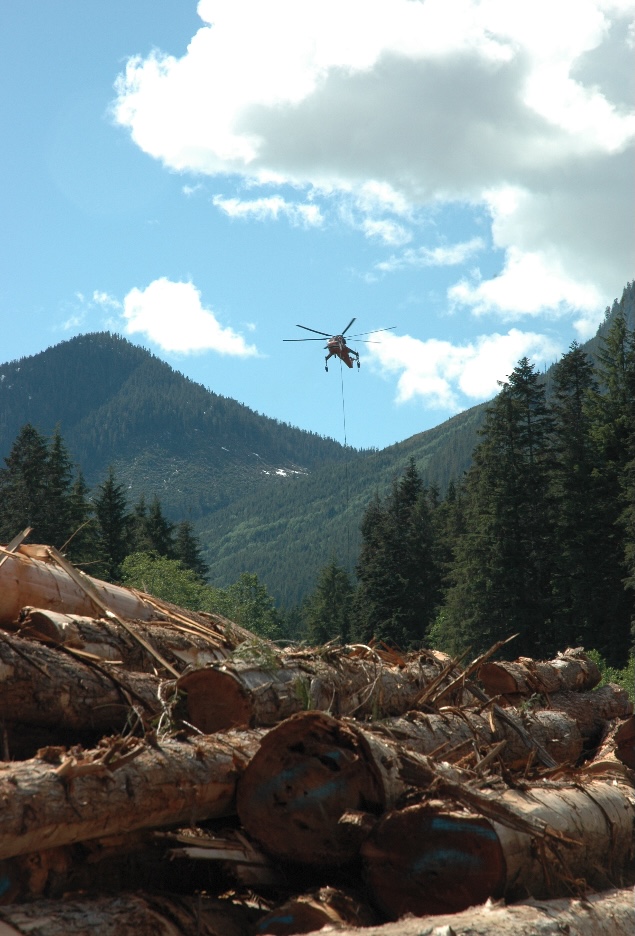 qathet Regional District’s planning committee is recommending the regional board express no objection to a Western Forest Products helicopter logging operation on Powell Lake. At the May 27 planning committee meeting, directors considered a recommendation to advise the provincial ministry of water, land and resource stewardship that the regional district has no objection to the crown land application for a licence of occupation for the purpose of industrial log handling and storage on the northern arm of the lake. Electoral Area A director and committee chair Jason Lennox said there was a detailed staff report on the application. “I’m in support of the recommendation,” said Lennox. “If you read the report, it’s a three-year activity for harvesting into the lake. You will see the different due diligence pieces in there around mitigation measures to the environment; the Powell Region Cabin Owners Association was consulted as well.
qathet Regional District’s planning committee is recommending the regional board express no objection to a Western Forest Products helicopter logging operation on Powell Lake. At the May 27 planning committee meeting, directors considered a recommendation to advise the provincial ministry of water, land and resource stewardship that the regional district has no objection to the crown land application for a licence of occupation for the purpose of industrial log handling and storage on the northern arm of the lake. Electoral Area A director and committee chair Jason Lennox said there was a detailed staff report on the application. “I’m in support of the recommendation,” said Lennox. “If you read the report, it’s a three-year activity for harvesting into the lake. You will see the different due diligence pieces in there around mitigation measures to the environment; the Powell Region Cabin Owners Association was consulted as well. British Columbia’s forests are home to a diverse range of wildlife species, which play a significant role in the ecology of a living forest. At the Forest Enhancement Society of BC, we recognize that responsible forest management plays a crucial role in enhancing wildlife habitat and supporting biodiversity. Because of this, one of our key purposes as an organization is to help improve wildlife habitat within B.C.’s forests. Collaborating with the Habitat Conservation Trust Foundation we have supported over 100 wildlife habitat enhancement projects restoring forest health and evaluating the habitat and wildlife response to fire… In this newsletter: Tick Safety from the BC Forest Safety Council; An interview with Thomas Sullivan, Applied Mammal Research Institute; 64 newly funded forest enhancement projects; Lower Nicola Indian Band wildfire risk reduction; and a UBC Faculty of Forestry survey explores interest in international tours.
British Columbia’s forests are home to a diverse range of wildlife species, which play a significant role in the ecology of a living forest. At the Forest Enhancement Society of BC, we recognize that responsible forest management plays a crucial role in enhancing wildlife habitat and supporting biodiversity. Because of this, one of our key purposes as an organization is to help improve wildlife habitat within B.C.’s forests. Collaborating with the Habitat Conservation Trust Foundation we have supported over 100 wildlife habitat enhancement projects restoring forest health and evaluating the habitat and wildlife response to fire… In this newsletter: Tick Safety from the BC Forest Safety Council; An interview with Thomas Sullivan, Applied Mammal Research Institute; 64 newly funded forest enhancement projects; Lower Nicola Indian Band wildfire risk reduction; and a UBC Faculty of Forestry survey explores interest in international tours.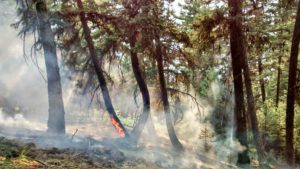 The Red Flag Warning has been sounded by Alberta Wildfire. But what does it mean? It means conditions are ripe for the ignition and fast-moving spread of wildfires. The forest-fire experts use a sliding scale, first adopted by the U.S. National Weather Service, to determine how dry the conditions are in the forest areas, and how the wind could help fan the flames if that dry tinder is ignited. Basically, a score is calculated based on wind speed, heat and the lack of humidity. A sample document provided by Alberta Wildfire shows a hypothetical watch being created when the maximum daily temperatures is expected to hit 33 Celsius, the humidity is at 25 per cent or lower, and wind speeds are 10 km/h. Basically, when it is punishingly hot and dry, it doesn’t take a lot of wind to trigger an alert. “And, just like weather alerts, “watch” is one level below “warning.”
The Red Flag Warning has been sounded by Alberta Wildfire. But what does it mean? It means conditions are ripe for the ignition and fast-moving spread of wildfires. The forest-fire experts use a sliding scale, first adopted by the U.S. National Weather Service, to determine how dry the conditions are in the forest areas, and how the wind could help fan the flames if that dry tinder is ignited. Basically, a score is calculated based on wind speed, heat and the lack of humidity. A sample document provided by Alberta Wildfire shows a hypothetical watch being created when the maximum daily temperatures is expected to hit 33 Celsius, the humidity is at 25 per cent or lower, and wind speeds are 10 km/h. Basically, when it is punishingly hot and dry, it doesn’t take a lot of wind to trigger an alert. “And, just like weather alerts, “watch” is one level below “warning.”
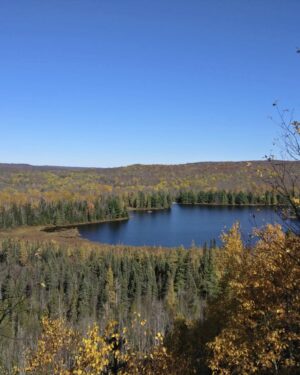 The Quw’utsun Nation and the Municipality of North Cowichan are moving forward on a co-management framework for the Municipal Forest Reserve. The initiative is being developed with the help of Your Wayfinders Management Solutions, a project management consulting firm. The goal is to create a partnership in key areas like shared decision-making, economic opportunities, Indigenous forest practices, recreation, and stewardship of culturally sensitive areas. A final draft plan is expected by early 2026. In the meantime, North Cowichan has paused new decisions on the forest reserve, but essential activities like FireSmart work and invasive species control will continue. North Cowichan had a technical review and public engagement done for the forest reserve between 2020 and 2023, and a preferred forest management scenario favouring ecological and sustainable values was presented to council.
The Quw’utsun Nation and the Municipality of North Cowichan are moving forward on a co-management framework for the Municipal Forest Reserve. The initiative is being developed with the help of Your Wayfinders Management Solutions, a project management consulting firm. The goal is to create a partnership in key areas like shared decision-making, economic opportunities, Indigenous forest practices, recreation, and stewardship of culturally sensitive areas. A final draft plan is expected by early 2026. In the meantime, North Cowichan has paused new decisions on the forest reserve, but essential activities like FireSmart work and invasive species control will continue. North Cowichan had a technical review and public engagement done for the forest reserve between 2020 and 2023, and a preferred forest management scenario favouring ecological and sustainable values was presented to council.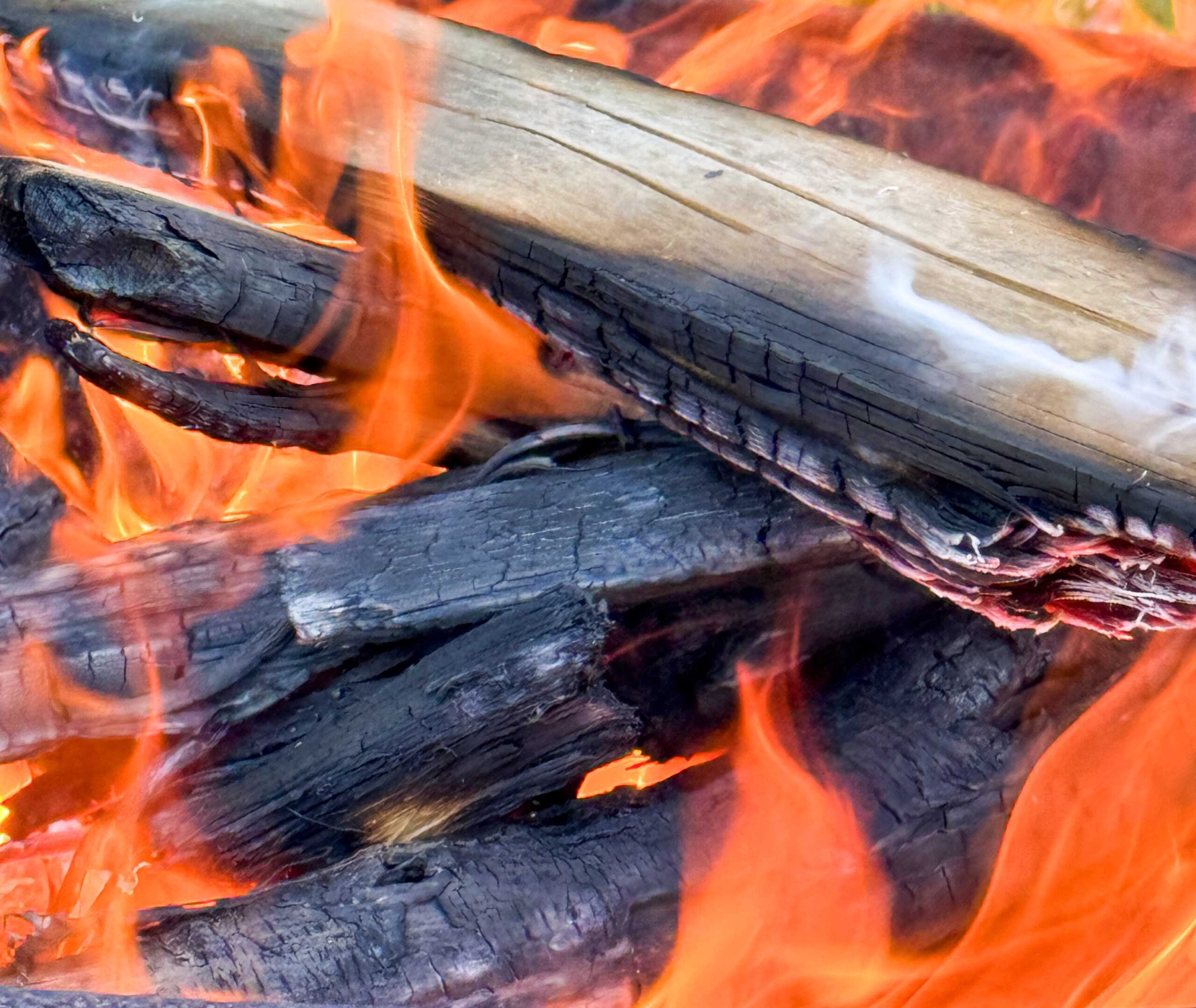 NANAIMO — Larger, open fires are set to be banned for the summer months, effective at the end of this week. The Coastal Fire Centre will enact a sweeping ban on category two and three fires beginning at noon on Friday, May 30, a typical first step in their fire prevention efforts every summer. Banned across Vancouver Island and a vast majority of coastal B.C. will be large burn piles or burns over stubble or grass to certain measurements. Also banned are fireworks, exploding targets, burn barrels and cages, air curtain burners and other, similar open flames. …“Anyone found in contravention of an open fire prohibition may be issued a violation ticket for $1,150, required to pay an administrative penalty of up to $10,000 or, if convicted in court, fined up to $100,000 and/or sentenced to one year in jail,” the BC Wildfire Services stated.
NANAIMO — Larger, open fires are set to be banned for the summer months, effective at the end of this week. The Coastal Fire Centre will enact a sweeping ban on category two and three fires beginning at noon on Friday, May 30, a typical first step in their fire prevention efforts every summer. Banned across Vancouver Island and a vast majority of coastal B.C. will be large burn piles or burns over stubble or grass to certain measurements. Also banned are fireworks, exploding targets, burn barrels and cages, air curtain burners and other, similar open flames. …“Anyone found in contravention of an open fire prohibition may be issued a violation ticket for $1,150, required to pay an administrative penalty of up to $10,000 or, if convicted in court, fined up to $100,000 and/or sentenced to one year in jail,” the BC Wildfire Services stated.



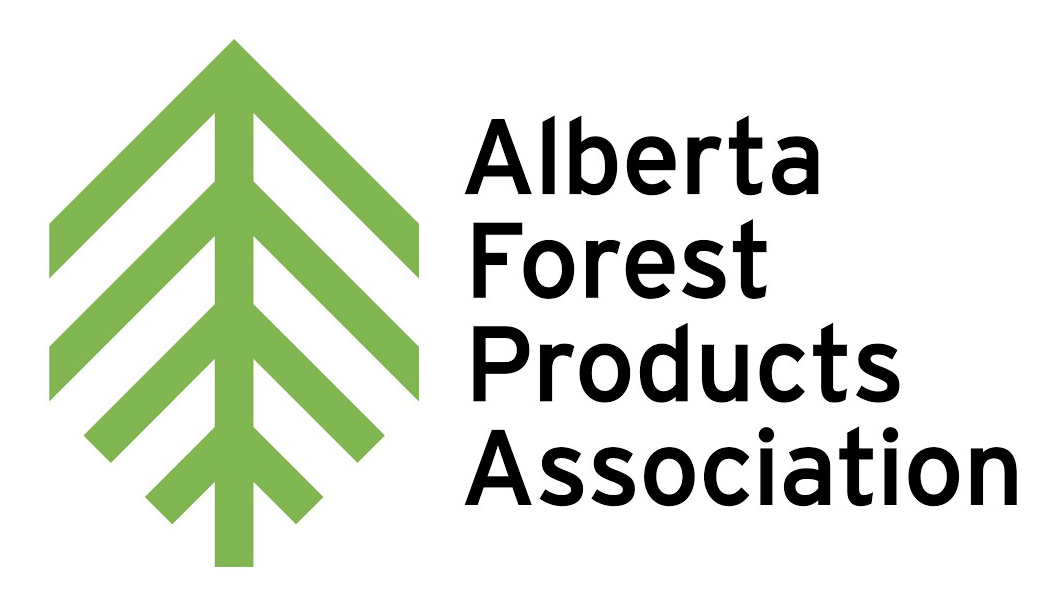 To celebrate the dedication of our industry and our collective love for Alberta forests, the Alberta Forest Products Association (AFPA), will be hosting a raffle The prize? Be entered into a draw for a chance to win a $200 Mountain Equipment Co-op (MEC) or Marks Work Warehouse gift card (choice between the two) and a
To celebrate the dedication of our industry and our collective love for Alberta forests, the Alberta Forest Products Association (AFPA), will be hosting a raffle The prize? Be entered into a draw for a chance to win a $200 Mountain Equipment Co-op (MEC) or Marks Work Warehouse gift card (choice between the two) and a  Boeing Canada says it’s investing millions of dollars into business ventures in B.C. and Quebec with the eventual goal of producing close to 200 million litres of sustainable jet fuel every year. The announcement, made Wednesday, includes nearly $17.5 million split between two projects looking to turn wood waste and carbon captured from industrial smokestacks into sustainable aviation fuel. The fuel, known in industry as SAF, has the potential to reduce carbon emissions by up to 80 per cent over its lifecycle and “offers the fastest route to decarbonization in the aviation sector,” according to Boeing. Boeing’s latest investment will direct $10 million to Project Avance, a joint venture between Bioenergie AECN and Alder Renewables in Port Cartier, Que. The project aims to convert wood residue from sawmills into low-carbon bio-crude that can later be converted into almost 38 million litres of unblended jet fuel every year.
Boeing Canada says it’s investing millions of dollars into business ventures in B.C. and Quebec with the eventual goal of producing close to 200 million litres of sustainable jet fuel every year. The announcement, made Wednesday, includes nearly $17.5 million split between two projects looking to turn wood waste and carbon captured from industrial smokestacks into sustainable aviation fuel. The fuel, known in industry as SAF, has the potential to reduce carbon emissions by up to 80 per cent over its lifecycle and “offers the fastest route to decarbonization in the aviation sector,” according to Boeing. Boeing’s latest investment will direct $10 million to Project Avance, a joint venture between Bioenergie AECN and Alder Renewables in Port Cartier, Que. The project aims to convert wood residue from sawmills into low-carbon bio-crude that can later be converted into almost 38 million litres of unblended jet fuel every year.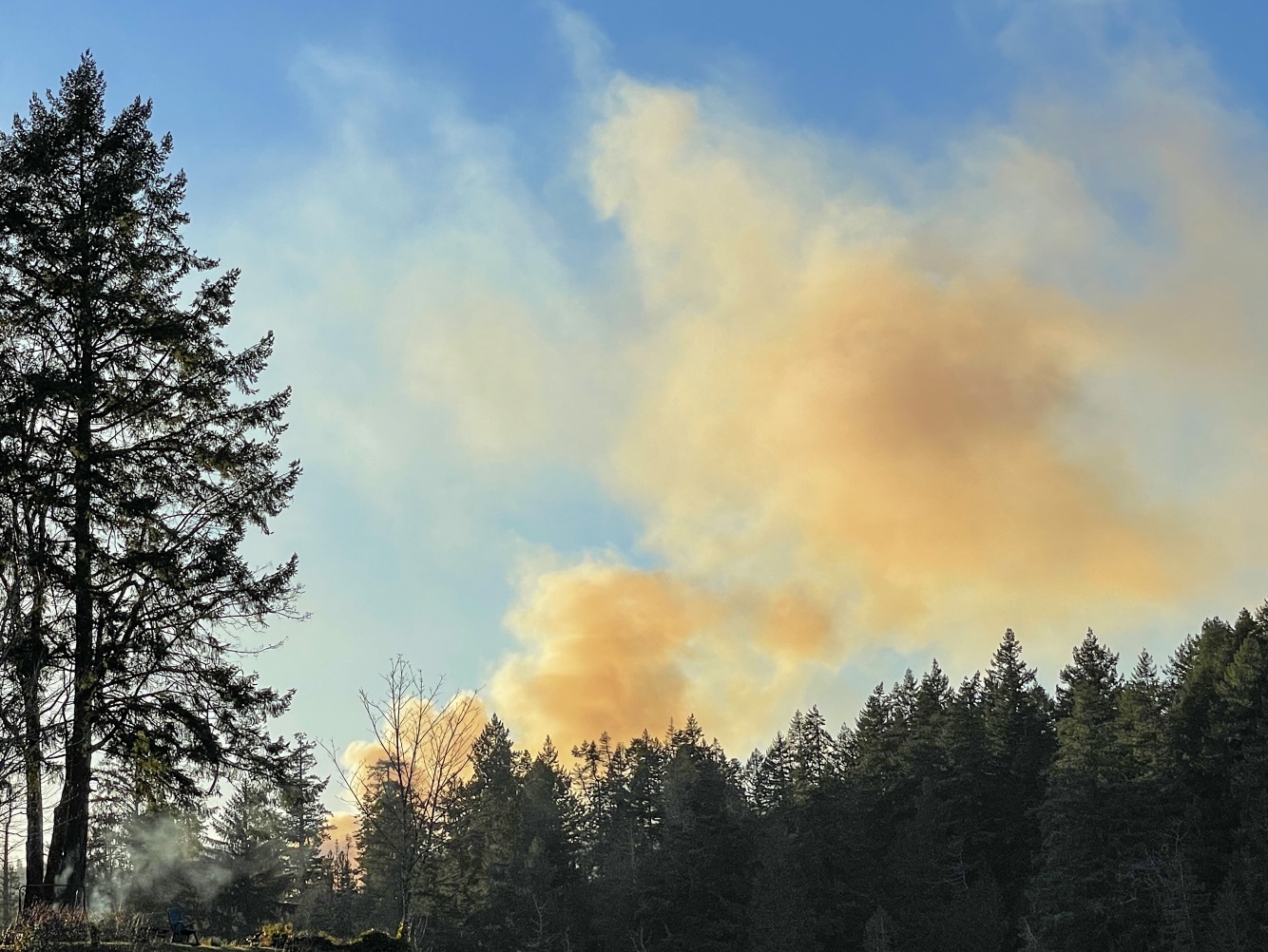 Saskatoon & Winnipeg — In response to the devastating wildfires threatening communities in central Canada. Dr. Murray Opdahl, a family physician and co-chair of CAPE Saskatchewan said, “It’s a dark day in … with so many of our communities at risk from these devastating wildfires. Wildfires and wildfire smoke pose immediate safety risks, and can have long-lasting impacts on people’s health and mental health. Our communities need immediate support during this crisis. We also need bold action to stop these wildfires from continuing to get worse each year. The science is clear: these increasingly severe wildfires are directly linked to climate change driven by fossil fuel emissions. What we’re witnessing isn’t natural; it’s the result of human activity warming our planet. I’m calling on all governments to take immediate action to protect people on the frontlines of this crisis—and to declare their commitment to accelerate the transition from fossil fuels to safer alternatives.”
Saskatoon & Winnipeg — In response to the devastating wildfires threatening communities in central Canada. Dr. Murray Opdahl, a family physician and co-chair of CAPE Saskatchewan said, “It’s a dark day in … with so many of our communities at risk from these devastating wildfires. Wildfires and wildfire smoke pose immediate safety risks, and can have long-lasting impacts on people’s health and mental health. Our communities need immediate support during this crisis. We also need bold action to stop these wildfires from continuing to get worse each year. The science is clear: these increasingly severe wildfires are directly linked to climate change driven by fossil fuel emissions. What we’re witnessing isn’t natural; it’s the result of human activity warming our planet. I’m calling on all governments to take immediate action to protect people on the frontlines of this crisis—and to declare their commitment to accelerate the transition from fossil fuels to safer alternatives.” Fire crews in northern Manitoba have so far been able to contain an encroaching wildfire that forced thousands from their homes, while more residents in Saskatchewan have been told to leave due to a fast-moving blaze. The Saskatchewan government issued an evacuation alert Sunday morning for the dozens of residents that live in the hamlet of Timber Bay. Residents were told to leave the community on their own and head south to a hotel in Regina, about 484 kilometres away, to receive further support. …Approximately 80 people from Timber Bay are the latest to be forced from their homes. In Manitoba, some 17,000 Manitobans have had to leave their homes due to fires. Officials in Flin Flon, Man., where a nearby out-of-control wildfire crews have been trying to keep a nearby blaze at bay, said the fire burning near the mining city has been contained to outside its perimeter highway…
Fire crews in northern Manitoba have so far been able to contain an encroaching wildfire that forced thousands from their homes, while more residents in Saskatchewan have been told to leave due to a fast-moving blaze. The Saskatchewan government issued an evacuation alert Sunday morning for the dozens of residents that live in the hamlet of Timber Bay. Residents were told to leave the community on their own and head south to a hotel in Regina, about 484 kilometres away, to receive further support. …Approximately 80 people from Timber Bay are the latest to be forced from their homes. In Manitoba, some 17,000 Manitobans have had to leave their homes due to fires. Officials in Flin Flon, Man., where a nearby out-of-control wildfire crews have been trying to keep a nearby blaze at bay, said the fire burning near the mining city has been contained to outside its perimeter highway…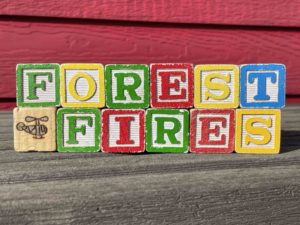 FLIN FLON, Manitoba – Cooler temperatures and a chance of rain this week is expected in a northwestern Manitoba city that’s had to evacuate thousands of people due to wildfire. Environment Canada says temperatures in the mid teens to mid 20s are forecasted this week, with a good chance of rain coming Saturday in Flin Flon. Fire crews have been trying to keep a blaze near Flin Flon at bay, and have said the fire has been contained to outside its perimeter highway. Crews say there have been no structures lost due to the wildfire. More than 17,000 people have been displaced by wildfires in Manitoba, including 5,000 from Flin Flon. Thousands have been affected by wildfires across the Prairie provinces, with Saskatchewan issuing an evacuation alert Sunday morning for dozens of residents in the small northern community of Timber Bay, located about 260 kilometres northeast of Saskatoon. [END]
FLIN FLON, Manitoba – Cooler temperatures and a chance of rain this week is expected in a northwestern Manitoba city that’s had to evacuate thousands of people due to wildfire. Environment Canada says temperatures in the mid teens to mid 20s are forecasted this week, with a good chance of rain coming Saturday in Flin Flon. Fire crews have been trying to keep a blaze near Flin Flon at bay, and have said the fire has been contained to outside its perimeter highway. Crews say there have been no structures lost due to the wildfire. More than 17,000 people have been displaced by wildfires in Manitoba, including 5,000 from Flin Flon. Thousands have been affected by wildfires across the Prairie provinces, with Saskatchewan issuing an evacuation alert Sunday morning for dozens of residents in the small northern community of Timber Bay, located about 260 kilometres northeast of Saskatoon. [END]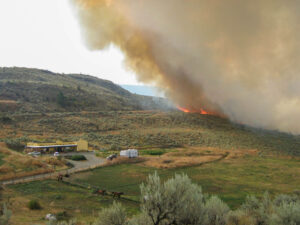 Saskatchewan is battling the worst wildfire it’s seen in decades — including the 300,000-hectare Shoe Fire in northern Saskatchewan — and experts say it’s largely caused by climate change. “This is classic climate change,” said Colin Laroque, head of soil science and professor at the University of Saskatchewan. Laroque said climatology is studied using 30-year timeframes of weather patterns, which “weren’t that different” until recently. …”These are things that we traditionally saw more in June, July and later summer, when everything dried out and then the fires took off,” Laroque said. Saskatchewan is making its way out of a relatively dry period. Few places had snow for long periods of time over winter. In the past, “snowpacks” would take time to fully melt and trickle into the ground as it warmed up. This would recharge the moisture of the soil.
Saskatchewan is battling the worst wildfire it’s seen in decades — including the 300,000-hectare Shoe Fire in northern Saskatchewan — and experts say it’s largely caused by climate change. “This is classic climate change,” said Colin Laroque, head of soil science and professor at the University of Saskatchewan. Laroque said climatology is studied using 30-year timeframes of weather patterns, which “weren’t that different” until recently. …”These are things that we traditionally saw more in June, July and later summer, when everything dried out and then the fires took off,” Laroque said. Saskatchewan is making its way out of a relatively dry period. Few places had snow for long periods of time over winter. In the past, “snowpacks” would take time to fully melt and trickle into the ground as it warmed up. This would recharge the moisture of the soil.

